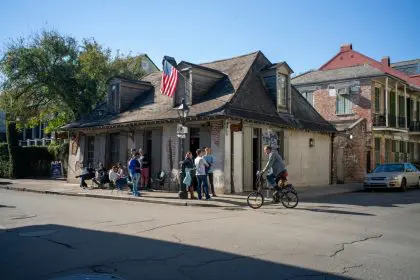Along both sides of the largest River in the United States, residents are bracing for floods not seen since 1927. The Mississippi River is cresting as a result of both record rainfall and snow over the past spring and winter. It has wreaked havoc, thus far, but is not expected to crest until Wednesday, a point at which record flooding is anticipated all the way to the Gulf of Mexico.
both sides of the largest River in the United States, residents are bracing for floods not seen since 1927. The Mississippi River is cresting as a result of both record rainfall and snow over the past spring and winter. It has wreaked havoc, thus far, but is not expected to crest until Wednesday, a point at which record flooding is anticipated all the way to the Gulf of Mexico.
What has not been discussed overtly is the devastating impact such flooding will have on the predominantly African American communities living near the major thoroughfare, especially in states like Arkansas, Tennessee, Mississippi and Louisiana.
Shelby County, Tenn., for example, where Memphis is located, maintains a population of around 1 million people, 52 percent of which are African American. The community of Frayser, which is six miles north of Memphis, is surrounded by three rivers — the Mississippi to the west, the Wolf to the south and the Loosahatatchie to the north — and has already started to be evacuated by local officials. Estimates indicate that North Memphis and Frayser are almost 80 percent African American with the average annual income near $25,000 annually when adjusted for inflation. Unemployment is more than 20 percent in this area.
The flooding also will impact Dyersburg, Tenn., about 20 miles from the Mississippi where the North Fork of the Forked Deer River runs into the Mississippi. When the crest, which is expected to reach 48 feet in Memphis, passes, it is predicted to crest at 64.5 feet on May 17 in the Vicksburg, Miss., area. This means that the flood waters will reach more than a foot above the Yazoo Backwater Levee near Yazoo City, Miss., the place of my grandmother’s birth. Both are predominantly African American communities.
The 1927 flood caused up to 1,000 deaths and left 600,000 homeless. The fear is that the flood reminds many of how the majority of blacks were negatively impacted in the aftermath of Hurricane Katrina. On Wednesday, President Barack Obama declared parts of Kentucky, Mississippi and Tennessee as disaster areas due to flooding. –torrance t. stephens, ph.d.
















